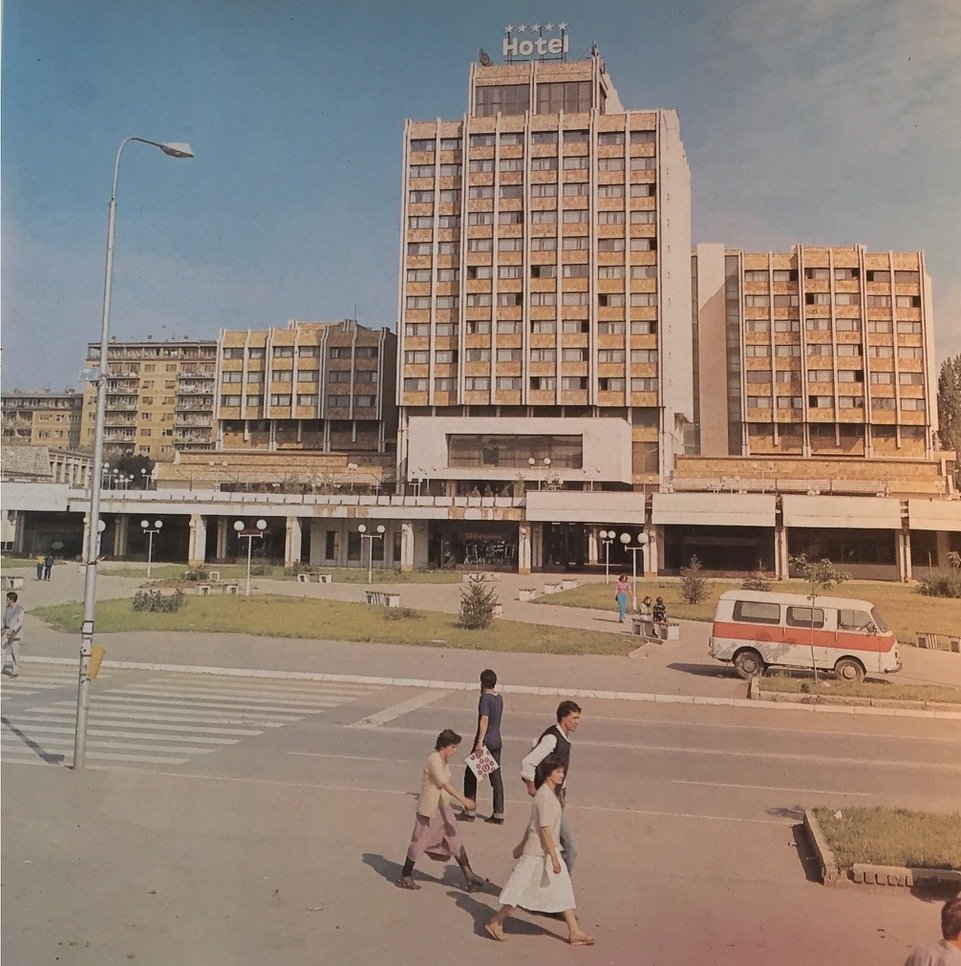Event: 20th century hotel writers – Darran Anderson and Marcel Krueger in conversation
/People in the hotel
“The hotel that I love like a fatherland is situated in one of the great port cities of Europe, and the heavy gold Antiqua letters in which its banal name is spelled out (shining across the roofs of the gently banked houses) are in my eye metal flags, metal bannerets that instead of fluttering blink out their greeting. Other men may return to hearth and home, and wife and child; I celebrate my return to lobby and chandelier, porter and chambermaid—and between us we put on such a consummate performance that the notion of merely checking into a hotel doesn’t even raise its head.” – Joseph Roth, “Arrival in the Hotel”
by Marcel Krueger:
I am not going to lie: I really like hotels. There is something very appealing about entering my room after I've checked in, unpacking my bags, setting up my laptop, notes and reference books I require for the piece of writing I'm working on the desk, and beginning to fill the blank canvas that a hotel room presents for each new guest, even if it's just for a brief stay. Checkout will come soon, my presence erased by the cleaning staff and the room again turned into a blank canvas for the next guest. Hotels, after a fashion, can provide us with a fresh start whenever we visit. Or with an escape, to a a temporary home turned into a room of one's own by the magic of the “do not disturb” sign. And that applies to any hotel, regardless if it's the Grand Hotel des Londres in Istanbul or a B&B franchise behind the train station in Lüneburg.
Of course, I am aware of the fact that being able to avail of a hotel on my travels is a privilege. And there are many other aspects of hotels that have nothing to do with the romance of travel or creative work: of being used as emergency (or permanent) accommodation for homeless people and refugees in the Republic of Ireland; of the Hotel Lux in Moscow becoming a trap for exiles that had fled Nazi Germany and being transported from here directly to the GULAG and the murder basements of the NKVD; of the Hotel Europa in Belfast becoming the “most bombed hotel of Europe” during the Troubles; of both Tito and Serbian war criminal Arkan using the Grand Hotel Pristina, the latter and his gang posting a sign at the main entrance of the hotel that read: “The entrance is forbidden for Albanians, Croats, and dogs”.
Hotels have always fascinated writers, as places of refuge and as setting alike, so it is no wonder that especially the first half of the 20th century is rife with books and stories set in hotels. I therefore honoured that one of my favourite Berlin hotels, the Circus Hotel on Rosenthaler Platz, has invited me and one of my favourite European writers, the mighty Darran Anderson (who was just awarded the Windham-Campbell Prize for non-fiction), to talk more about our favourite 20th century hotel writers and their books. And we'll not only talk about the likes of Joseph Roth and Vicki Baum, but also about the real-life hotels that influenced them.
“I have been here for long enough. If I stayed longer I would be unworthy of the great blessing of being a stranger. I might degrade the hotel to a home if I no longer left it unless I had to. I want to feel welcome here, but not at home. I want to be able to come and go. It’s better to know that a hotel is waiting for me here.” – Joseph Roth, “Leaving the Hotel”
READING: FAVOURITE 20TH CENTURY HOTEL WRITERS
DARRAN ANDERSON AND MARCEL KRUEGER IN CONVERSATION
Monday 26th June, 4 pm, Circus Hotel Lobby. Free event.
Rosenthaler Straße 1
10119 Berlin









